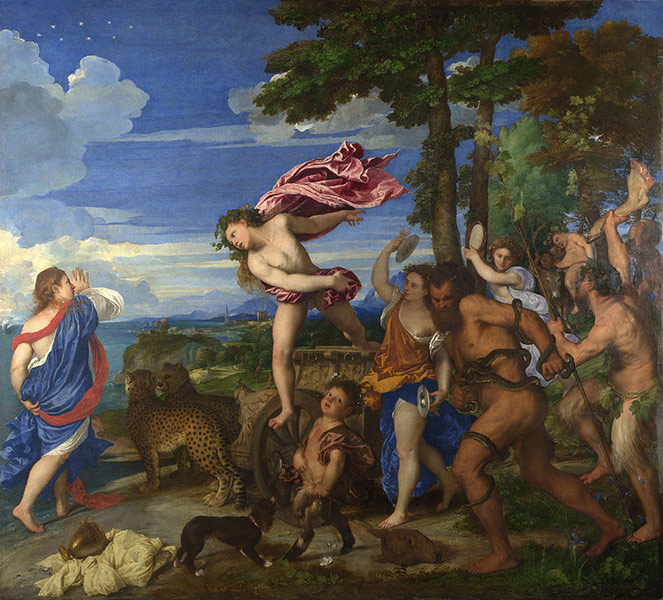Dionysus is the god of the grape harvest, winemaking and wine, of ritual madness, fertility, and theatre. He is a god of epiphany, "the god that comes", and his "foreignness" as an arriving outsider. He is the only god born from a mortal mother, and his festivals were the driving force behind the development of Greek theatre. His Roman name was, Bacchus, origin of the word, "bacchanalia," or a grandiose celebration, and so he represents the instinct for passion in males, at being recipients of good fortune and unanticipated discovery, the thrill for men, of being the "new kid on the block," and throwing one's self into social randomness, to discover in fortunate accidents, that it really is true: "The world is your oyster." His is the power of the masculine instincts to rise in social standing through being "the life of the party," and "master of ceremonies."

The word for this state of being is "shameless," which gives some pause to define the word as somehow, "shameful," when in fact it means, "fully alive" in our parlance. Shame is the opposite of passion, and in this case, masculinity. And so to be "shameless" is to usurp the external forces that take away the vitality, robbing life of life. His way is to forge masculinity purely by the power of the will to celebrate, to declare an identity of jubilation, and to win the crowd to the same, celebratory feeling. To "feel lucky," and in so doing, discover that one may "make his own luck" through being his own publicist and testimonial to the "good life."
This instinct is different than that of the Narcissus Instinct, in that it contains a skill and a cleverness that belies the fact that in making others happy through celebration, that there is power worth celebrating in simultaneously raising one's own social rank.
We have learned of that desire in men within the Zeus Instinct - to know one's rank and then to desire its elevation through leadership. This is an alternative way to do so through giving others what they want, rather than what, from a leader's perspective, "what they need." His procession is made up of wild female followers and the god himself is drawn in a chariot, usually by exotic beasts such as tigers. His is a "cult" for the followers of his Dionysian Mysteries. He is the master marketer, the P.T. Barnum of his own circus. In today's language, he "knows how to grow a posse."
Dionysus is the son of Zeus and the mortal Semele, both fully divine, and also human. Zeus's wife, Hera, discovered the affair while Semele was pregnant. Appearing as an old crone, Hera befriended Semele, who informed her that Zeus was the actual father of the baby, causing Semele to demand that Zeus reveal himself. Since a mortal could not look at the face of a god without dying, and she perished in a tower of flame. Zeus rescued the unborn Dionysus by sewing him into his thigh, thus his name, meaning "twice-born".
Dionysus is the male instinct of feeling like "being born again," a feeling of celebrity, fame, and luck that one crafts for one's self.

